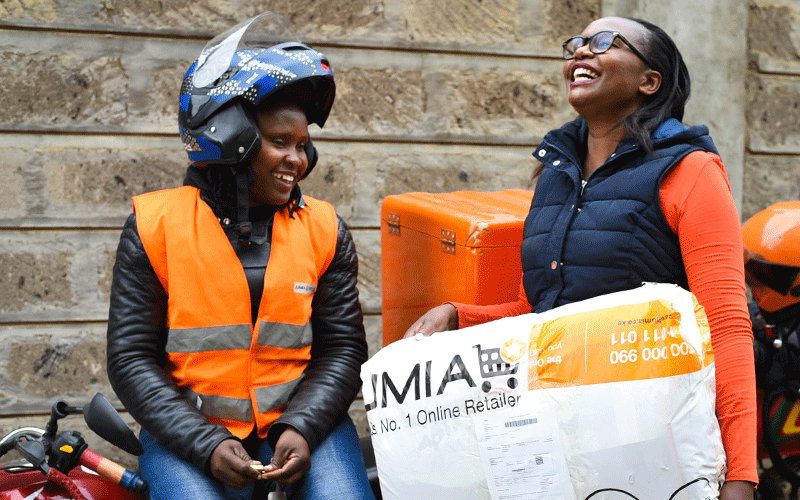Gig workers among the most affected by Covid-19 shocks

Lewis Njoka @LewisNjoka
The ongoing Coronavirus (Covid-19) crisis has shone the spotlight on vulnerable gig workers most of whom lack social safety nets.
While the gig economy offers flexibility to workers, it however presents challenges in the form of limited access to unemployment benefits, health insurance or sick leave.
A recent study by Mercy Corps shows that the directives issued by the government to curb the spread of the virus have adversely affected the gig economy whose workers live from pay check to pay check.
A gig worker refers to a temporary, task-based independent worker such as plumbers, musicians, DJs, beauticians, electricians, taxi driver and cleaners among others.
The study shows that thousands of gig workers have been rendered jobless by the pandemic, but even those who remained are suffering significantly.
Additional jobs
“Nearly 80 per cent of respondents reported depending solely on temporary jobs to earn an income.
Under current conditions, only 24 per cent of these respondents have been able to take up additional jobs,” said Jerioth Mwaura, a Project Lead at Mercy Corps, quoting the study report.
Majority of gig workers no longer have income to sustain themselves and are instead employing negative coping mechanisms, such as taking expensive debt, selling household items, delaying or skipping rent and borrowing food.
“Eighty per cent of respondents have either delayed or skipped paying rent since the pandemic started, while 88 per cent now have outstanding debts taken in an effort to meet their everyday needs. 
Over 82 per cent of surveyed households mentioned cutting back on non-food items such as water and hygiene products with others resorting to eating one meal a day,” he added.
Digital Transport Forum Chief Executive Officer, Ryan Kanyadong, says online taxi business has reduced by half since the Covid-19 pandemic struck, leaving the drivers, who are paid per trip, exposed to economic hardships.
“The number of trips they get has reduced by 50 per cent. The average is four trips a day making an average of Sh300 per trip.
A gross income of Sh1,200 per day is below minimum wage considering that fuel price has gone up,” said Kanyadong.
He said gig economy workers were vulnerable as they lacked social protection. adding that only few could afford services such as insurance and retirement plans.
Evans Mwenda, an upcoming artiste’s stage name, Stikey, says he had to relocate to his rural home in Tharaka Nithi after Covid-19 containment measures paralyzed the events industry which is his mainstay.
“I mainly rely on performing in clubs and concerts as well as videography. All these were severely affected by Corona.
I hope things go back to normal soon,” he said. The containment measures included a ban on international travel, dusk-to-dawn curfew, restrictions on inter-county movement and instructions to employees to work from home where possible.
However, a few gig workers such as courier workers have witnessed a surge in demand for their services as people operate from home making them use these services to minimize exposure.
Due to the temporary nature of gig work, employers are not obligated to provide social security benefits such as medical insurance, paid time-off, sick off, retirement benefits and other employee support provided in permanent and formal jobs.
Despite being more prone to accidents, lack of consistent income among gig workers makes them unsuitable for most insurance options leaving them exposed.
“Gig workers are, in particular, more complicated to insure due to the on-demand and unpredictable nature of their work, lack of structured contracts, and often poor and inconsistent pay.
As a result, most products provided by insurance companies do not meet the unique needs of the gig worker segment,” said Mwaura.
Six months
The report by Mercy Corps corroborates a projection by President Uhuru Kenyatta made on Labour Day where he warned that the number of jobless Kenyans could rise to half-a-million in the next six months.
It says there is a need for government and non-governmental actors to collaborate to provide reliable and affordable social protection to gig workers, most of whom provide essential services.
A survey by AppJobs notes that almost 70 per cent of the workers surveyed said they were not satisfied with the support they had received from their companies during the crisis.
Over half expected some help either from the government or the companies they work for.
AppJobs surveyed 1,400 gig workers – which include independent contractors, workers for online platforms, contract, on-call and temporary workers – to find out how Covid-19 had affected them.






